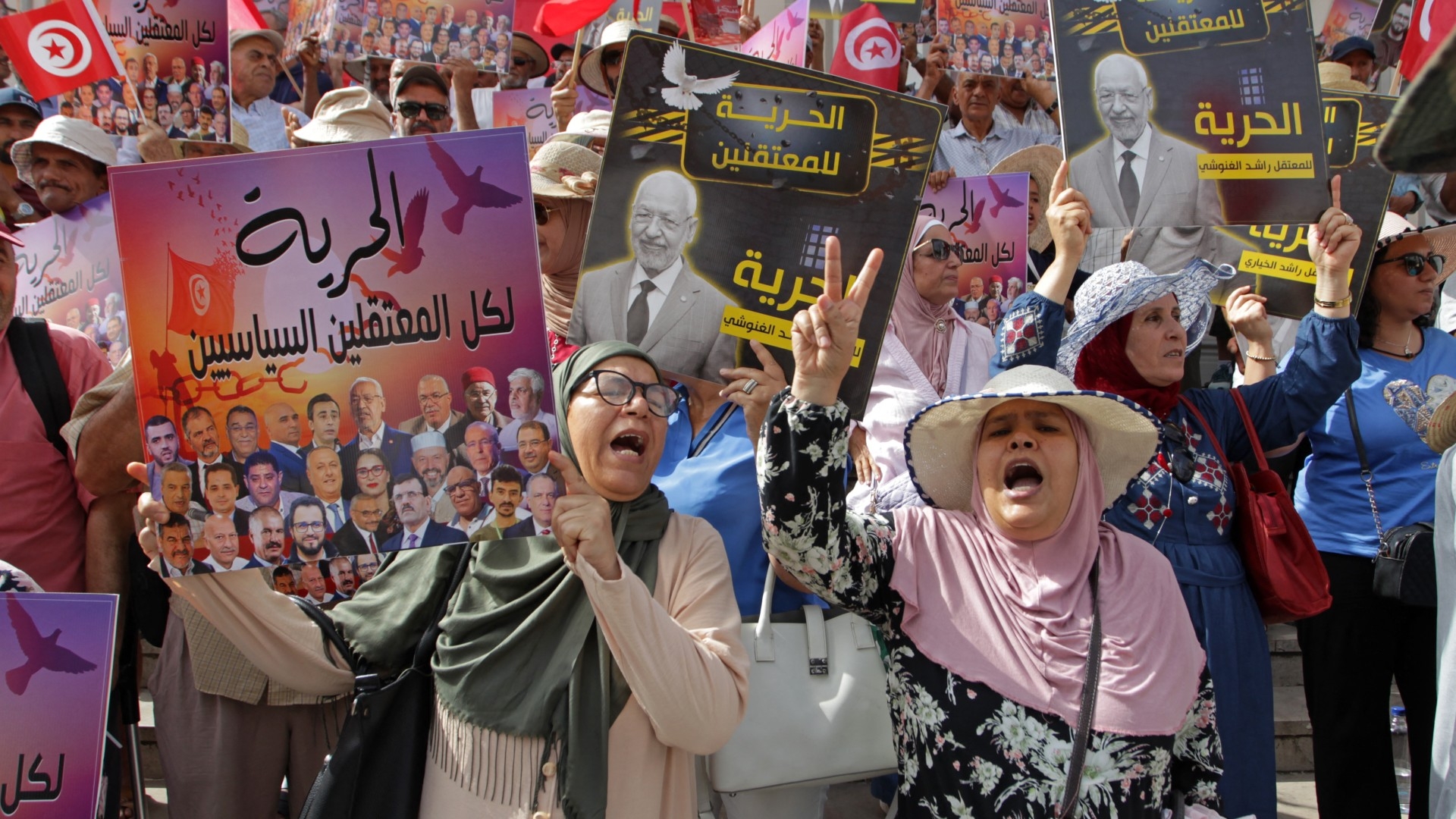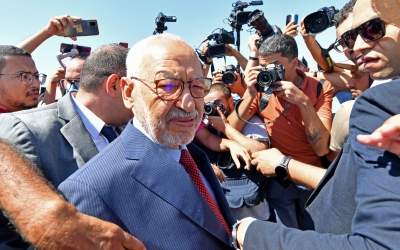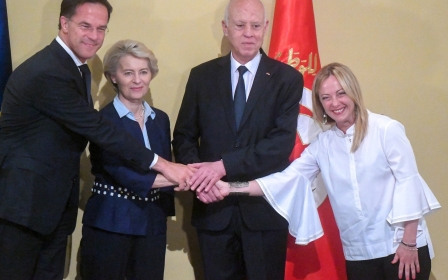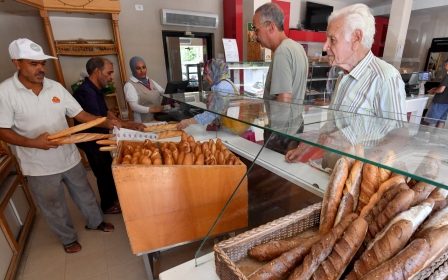Tunisia: Families of jailed opposition figures ask ICC to probe president

The families of four opposition figures jailed in Tunisia have called on the International Criminal Court (ICC) to investigate claims of political persecution and human rights violations allegedly committed by President Kais Saied's government.
At a press conference in The Hague on Thursday, Rodney Dixon, the families' lawyer, said the complaint was filed as an increasing number of Saied's opponents are being arrested, with several staging hunger strikes in prison.
"The crimes that need to be investigated are twofold," Dixon said. "Those against people who are singled out because they are opponents of the current government... and secondly, black migrants and black Tunisians targeted by a wave of brutal repression."
Thursday's complaint was filed under Article 15 of the Rome Statute which mandates the ICC's chief prosecutor initiate investigations if a reasonable basis for doing so exists.
Dixon had made a similar case to the African Court on Human and Peoples’ Rights earlier this year and the families have previously called on the European Union, the United Kingdom, and the United States to sanction Saied's government.
New MEE newsletter: Jerusalem Dispatch
Sign up to get the latest insights and analysis on Israel-Palestine, alongside Turkey Unpacked and other MEE newsletters
"We had to make this filing today because it is the [Tunisian] government which is perpetrating these acts," he said. "We are therefore asking the prosecutor to investigate those most responsible, which is the primary jurisdiction of the ICC, including the president himself and members of his government."
Arbitrary and politically motivated acts of repression have proliferated since Saied unilaterally suspended parliament and dissolved the government in July 2021.
After the power grab, the plans for which were first revealed by Middle East Eye, Saied decided to rule by decree, a move his opponents decried as a "constitutional coup".
The North African nation held parliamentary elections in December, but rights groups and political opponents labelled the process a sham after just nine percent of eligible voters decided to cast their ballots.
'There is no hope of attaining justice through the Tunisian judicial system'
- Yusra Ghannouchi
In recent months, opposition to Saied has grown largely due to unpopular economic reforms, soaring food prices and shortages of basic staples such as sugar, vegetable oil and rice.
As the economy sinks, Saied's government has jailed dozens of critics and drummed up animosity against Black migrants, with Saied making accusations of a conspiracy to change the demographic makeup of Tunisia using African migrants.
The comments have led to widespread persecution of Black Africans within Tunisia, as well as deportations to countries where they risk death.
'No justice in Tunisia'
On Friday, former speaker of parliament Rached Ghannouchi, 84, began a three-day hunger strike to protest his detention and show support for other "political prisoners".
A court sentenced Ghannouchi to one year in prison on "terrorism" charges in May, a charge his party says is politically motivated.
"There is no justice in Tunisia. There is no respect for the rule of law," his daughter, Yusra Ghannouchi, said at Thursday's press conference.

"The president has said explicitly on TV that any judge who dares to acquit these defendants will be considered an accomplice.
"So this is the situation we have in Tunisia, where there is no hope of attaining justice through the Tunisian judicial system."
The group's arrival at the court also comes days after former lawmaker Abir Moussi was detained while trying to file a complaint at the Tunisian president’s headquarters.
On Tuesday, her lawyer told Tunisia's official news agency that he did not know why she was being detained for 48 hours.
Dixon acknowledged it would be "difficult" to ensure the court launches the investigation and it was "unlikely that Tunisia was going to want to cooperate with the ICC".
Complaints brought through Article 15 have, however, been investigated by the prosecutor in the past, including against human rights violations in Myanmar.
"We're calling on the ICC prosecutor to at least visit Tunisia in order to send a very clear signal that these serious crimes against humanity over which the court has jurisdiction should not be tolerated," the lawyer said.
Middle East Eye delivers independent and unrivalled coverage and analysis of the Middle East, North Africa and beyond. To learn more about republishing this content and the associated fees, please fill out this form. More about MEE can be found here.




